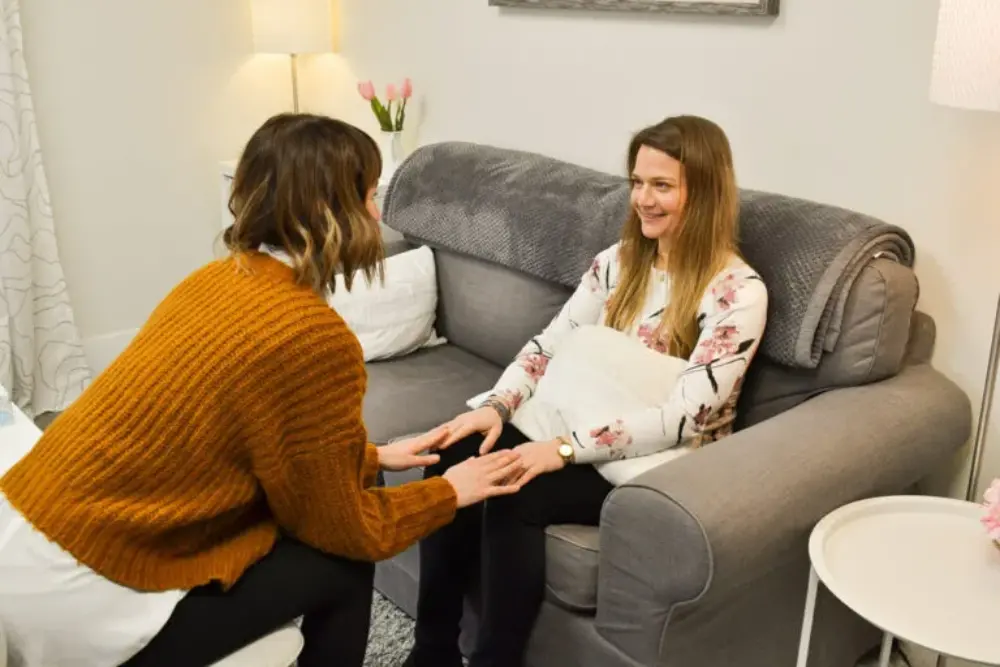
Episode 27: Life after Loss with Julie Long
- Safe Harbour Therapy Centre
Subscribe: Apple Podcasts | Google Podcasts
Life is inherent with loss and suffering. So how do we cope with loss when we feel like we can barely survive it?
Everyone experiences loss whether it’s a an injury or health diagnosis that changes the way you’re able to live your life; maybe it’s the death of a loved one; perhaps it’s being fired, demoted, or losing out on a promotion at work; it could be the loss of a partner through separation or divorce; maybe it’s the loss of the “old you” or your “old way of living” with the birth of a baby; maybe it’s a miscarriage or not being able to have children at all; maybe your child is born with a health issue and the idea of a family you had expected will not come to pass; maybe it’s a loss of your sense of safety after being assaulted or witnessing a trauma.
17 years ago on Wednesday February 12 2003, my brother, Brad took his own life. When I thought about what I would say about life after loss, I sought out the book, Option B: Facing Adversity, Building Resilience, and Finding Joy. It’s a book written by Sheryl Sandberg, after the sudden death of her husband and co-written by psychologist, Adam Grant.
When I think about life after loss, Viktor Frankl comes to mind when he says that “in some way, suffering ceases to be suffering at the moment it finds a meaning”.
I have made meaning out of my brother’s death by changing my profession from a teacher to a counsellor and now have created Safe Harbour – a comfortable place where people who are struggling like my brother, myself, or my family, can receive support from a wide variety of therapeutic approaches so they can move through their suffering.
I think one of the biggest hurdles for people is talking about their loss and for others it’s how to respond to someone who’s talking about their loss. Let’s face it, life is hard and talking about hard topics isn’t pleasant so sometimes we want to avoid uncomfortable topics like: suicide, death, miscarriage, infertility, bankruptcy, job loss, identity, divorce, assault, sexual orientation, addiction, incarceration, illness… but what’s really interesting to me is whenever I’ve brought up one of these topics in the past as I’ve struggled with them, is that people want to talk about their loss, too. I think it’s so relieving for both of us because we realize we aren’t alone in our pain. The silence can be so isolating…dealing with such heavy losses on our own can feel so unbearable!
I think it’s important to know that people want to talk because they are trying to make sense of what has happened in their life. The interesting thing is people who have experienced adversity tend to express more compassion towards those suffering, especially if they have experienced a similar loss. So when we are feeling the need to hide our discomfort, maybe we could open up and let someone know that we aren’t doing so good so that we can have the opportunity to understand our feelings better, maybe even feel understood …that way we have better chances of moving through our suffering.
I bet you are wondering…how do you respond to someone who starts to talk about their pain. The secret sauce is empathy and honesty. Be present with them. Acknowledge their pain. Just knowing that someone sees that you are suffering and takes the time to be with you sends the message that they care and that you matter.
I like how Option B talked about how shame makes us shrink inward and if we reach inward and remind ourselves that we can’t change what’s done but we can move forward by changing how we treat ourselves and that is with self compassion.
When we are struggling we need empathy but we also need to be encouraged and empowered to remind ourselves of that sense of agency and capacity in our lives that we experienced before our loss.
Sometimes meaning is found in just doing small things everyday that bring us joy, slowly building those new neural networks to feel and think differently. So I suppose we need to think about what brings us joy: cooking, gardening, walking, art, listening to music, watching a play, exercise, driving, playing with your kids or your dog, cleaning your house, going to a support group.
As noted in Option B, Larry Brilliant said,” A day of joy is 15 minutes. A day of pain is 15 years. No one pretends this is easy. But the job of life is to make those 15 minutes into 15 years and those 15 years in to 15 minutes”.
If you or a loved one are going through a loss please remember that it is easier to make it through the pain when we are connected to others. And to remember that we are not alone in our pain, others experience loss, too. Together we are stronger and can find that hope and resilience to take those steps and feel better. If you are in need of more support, please subscribe to our podcast as Jess Winnicki will be talking about the different layers of grief we experience as humans and how to create a sacred space to honour our feelings as sometimes it’s difficult to name how we are feeling so we can move through our suffering.
You can also sign up for our newsletter found at safeharbourtherapy.com to hear about when she will be running a group in the spring for those needing that connection to help move through their grief.
